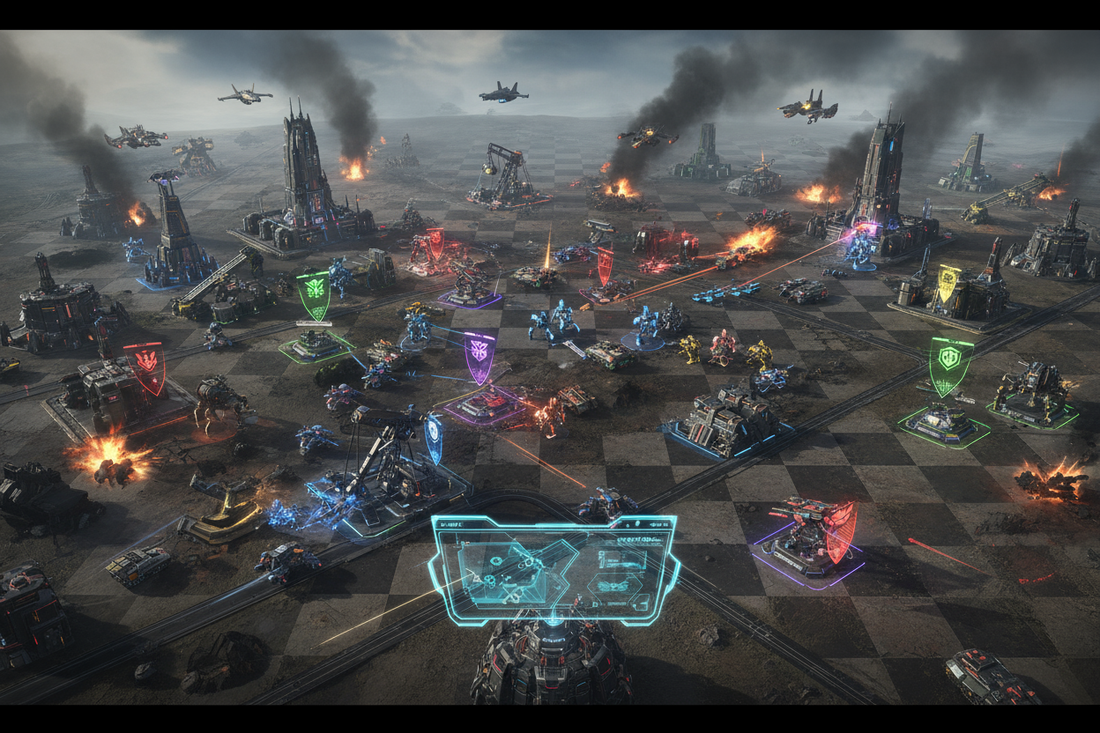
The Rise and Impact of Real-Time Strategy Games
Share
In the dynamic world of video gaming, few genres have experienced the evolution and enduring influence of real-time strategy (RTS) games. From modest beginnings to becoming a cornerstone in the gaming industry, RTS games have not only transformed digital entertainment but have also left an indelible mark on strategic thinking in wider contexts.
A Brief History
The origins of real-time strategy games can be traced back to the late 1980s, with notable titles such as "Herzog Zwei" paving the way for future innovations. However, it was the release of "Dune II" by Westwood Studios in 1992 that truly crystallised the genre's defining features. This landmark game introduced the core mechanics of resource gathering, base building, and direct unit control, setting a precedent for the entire genre.
The mid-1990s saw the golden age of RTS games with blockbusters like "Command & Conquer" and "Warcraft". These games not only pushed technological boundaries but also engaged players with compelling narratives and intricate gameplay. With each new title, the genre became increasingly sophisticated, culminating in the release of "StarCraft" in 1998. "StarCraft" elevated the RTS genre to unprecedented heights, with its balanced factions and robust multiplayer options, securing a dedicated fanbase that persists to this day.
The Cultural Impact
RTS games have had a significant cultural impact, influencing not only how games are developed and played but also inspiring enthusiasts towards problem-solving and strategic thinking. They often require players to think several steps ahead and anticipate their opponents' moves, skills that are transferrable to real-world contexts, such as business strategy and military tactics.
The rise of esports has further cemented the importance of RTS games. Tournaments for games like "StarCraft" and "StarCraft II" have garnered international audiences, paving the way for professional gaming as a viable career path. This influence extends beyond mere entertainment, fostering a global community that thrives on competition and shared experiences.
The Role of Traditional Games
While digital strategy games continue to captivate, traditional games also play an essential role in nurturing strategic thinking skills. Titles like UNO! Show 'em No Mercy offer players a platform to engage in strategic planning and adaptability in a fun, relaxed setting. Similarly, Dobble Paw Patrol Game for Fun Family Play and Exciting Challenges provides exciting and interactive challenges that appeal to all ages, further emphasising the universal appeal and impact of strategic gaming.
Conclusion
The rise of real-time strategy games is a testament to their enduring appeal and significant impact on gaming culture. By fostering competitive spirits and honing strategic skills, they have shaped how we engage with games and each other. Whether through the digital battlegrounds of classic RTS games or the tactile fun of card games like UNO Quatro, the influence of strategy-based games is undeniable and continues to thrive across various platforms.
Explore more about strategic gaming and discover engaging products at Meeple Worx.


